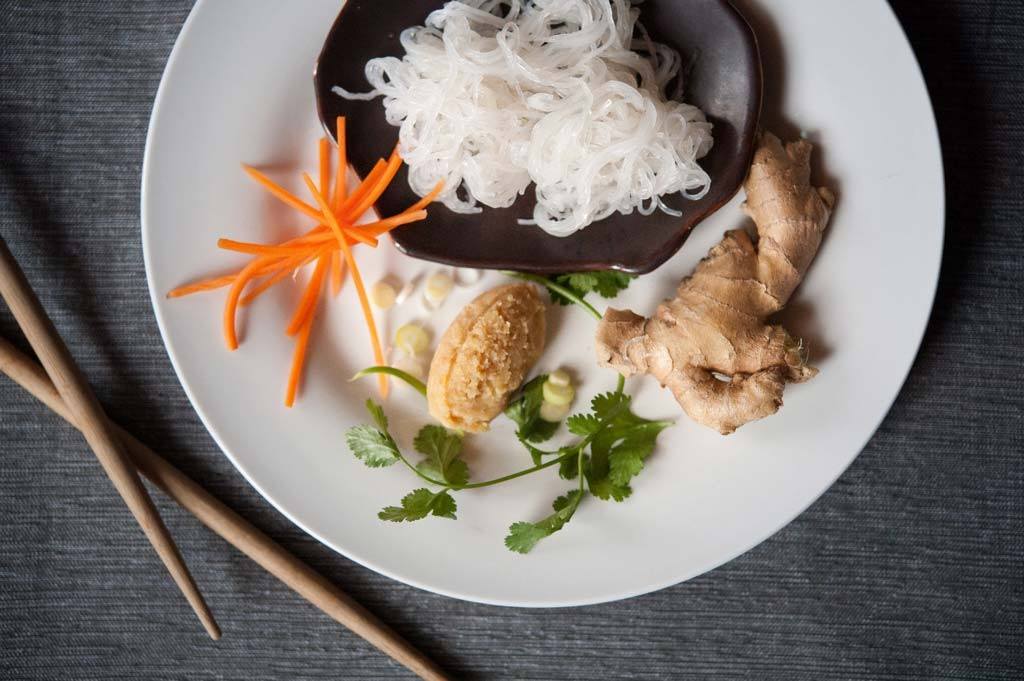It was a recent Indian dinner in San Francisco that brought the images tumbling forward once again.
I was a young single mother and a student at Sonoma State University, naively pursuing life’s larger questions, such as the meaning of life and—more urgent to me at the time—of death. I wanted answers, tangible, indisputable ones, and for a time I believed I could find them in the study of Eastern philosophy.
During these ultimately fruitless pursuits, the forces of chance and circumstance, of serendipity, propinquity, and synchronicity converged one summer and suddenly I was off on my first worldly adventure, headed, I thought, for the East Coast and Canada. A California native, I knew little of the rest of the country, had never felt summer’s humidity, seen fireflies, or watched lightning strike the ground. I was dazzled by every bit of what I encountered, a reaction that in a way rendered all things equal. When I found myself with a ticket to India—a gift from a new acquaintance who was convinced that India, not Canada, held my destiny—I was no more or less surprised than I was by sheer immensity of New York City or the living, moving lights that twinkled in the air each evening.
My ticket on Swiss Air from New York to Bombay included a day’s stopover in Geneva, where we arrived shortly after dawn on July 4. As I stepped onto the tarmac, it was as if I awoke from eons of sleep, as if I had been held captive and was only now allowed to return home. The enormous blue sky; the light, pale, yellow, and nearly liquid in its voluptuousness; the delicate, grassy aroma of the air: my heart ached with pleasure and something resembling remembrance. Someone spoke to me in French and the sound was a lullaby, a serenade, a caress.
My twelve hours in Geneva passed quickly, but they were more than enough to transform me entirely, though I cannot, even now, explain exactly why. Yet when I bordered the plane, I was someone else entirely. I moved through India like a shy ghost, utterly unrecognizable, especially to myself.
Some time later I was rescued from what seemed like certain death in rushing flood waters and taken to a Red Cross dispensary…
Indian adventures came hard and fast. Shortly after my arrival, I was ushered out of a cab into the flooded streets of Bombay by a cab driver who was distressed that I was crying. Some time later I was rescued from what seemed like certain death in rushing flood waters and taken to a Red Cross dispensary, where a nurse put me in a shower, gave me dry clothes and tucked me into bed, only to awaken me an hour later for breakfast. The memory of the sweet, spicy tea I was given lingers still.
The next day, my birthday, I traveled 200 kilometers to the small town of Ahmednager where I would live and work for the next two months. Tired and confused, I accepted a ride in a rickshaw with a man who spoke English and understood where I was headed. I welcomed his assistance, yet when I registered with the police a short time later—a requirement of all visitors—I was severely chastised for riding with a man who was not my husband. Word traveled quickly, and by the time I arrived at my destination, everyone knew the story of the scandalous young woman who had been crying in Bombay and who accepted a ride from a strange man, stories that followed me throughout my stay.
For a time, I lived in luxury, waited on by servants and fed a diet rich in aged goat, at the home of the late mayor, whose widow operated an inn for English speaking visitors. Motivated by guilt and indigestion, I moved to a small villa where, for the equivalent of a dollar a day, I had a tiny room, two vegetarian meals, and a neighbor who began each morning by playing the sole record in his collection, “Monster Mash”. Over and over it played on a tinny machine until the Indian gentleman left for work; it began again when he returned in the evenings. To this day, the song is an essential thread in the fabric of my India.
Although my journey instilled in me a deep regard for India, an intensely physical, sensual connection to a country where I felt like a perfect stranger even to myself, it was that glimpse of Europe that transformed me, cell by cell, into who and what I am today. It remains the most surgical experience of my life, for the effect of the unplanned pilgrimage was as precise and effective as a surgeon’s knife. And there are no remnants of what was cut away on that golden summer morning so long ago.
